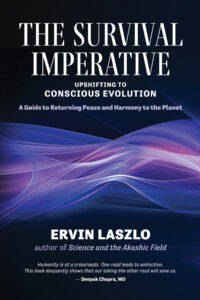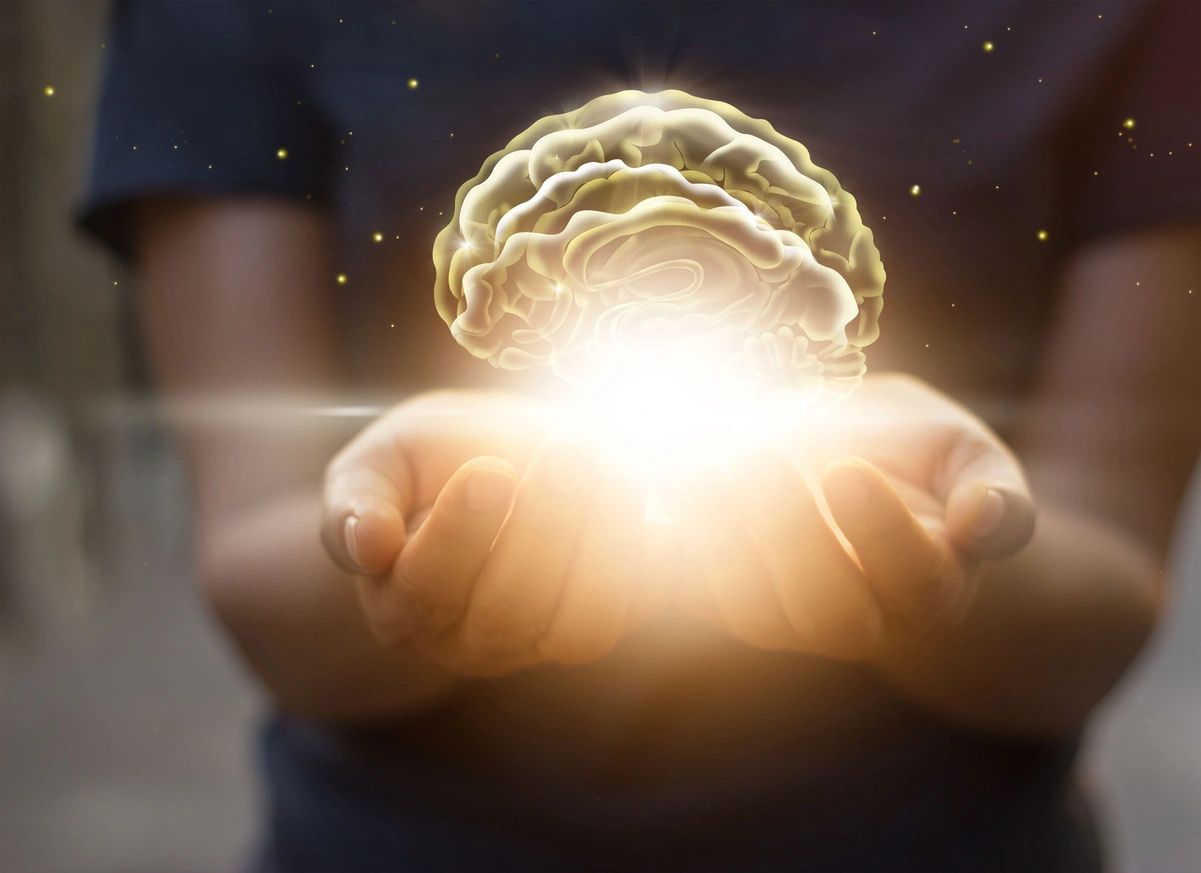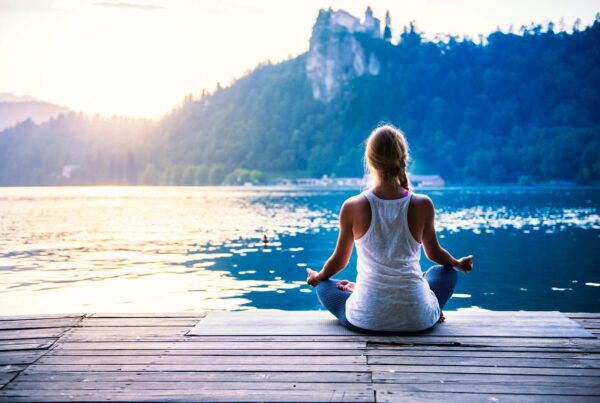In my last blog, “Evolution: The Force Is with Us” I wrote that there is a force in the universe that is active in you and in me, and is a great resource in our quest for a better life and a better world. I now want to add that while this force exists and is with us—indeed, it is in us—making use of it hinges on a crucial factor: the nature of your mindset.
Is there something wrong with your mindset? And supposing that there is something wrong with it, what can you do to put it right? Here I am assuming here that you are a fairly typical member of modern-day humanity, with a mindset that is representative of the majority of modern people. If you already have a changed mindset, you can take what follows a confirmation of your great choice in becoming what we all need to become.
What’s Wrong with Your Mindset?
The Germans have an expression that’s widely used even in other languages. It’s Weltanschauung. This is an embracing concept—it does not stand for a rigorously scientific view, nor does it stand for a purely fictional one. But it does stand for a view of the world that people can recognize as their own. This is an embracing view, encompassing the whole gamut of values and feelings associated with one’s beliefs and convictions regarding the nature of the world.
In the current scientific literature, there is a more rigorous but also more limited concept: this is “paradigm.” Originally developed by philosopher of science Thomas Kuhn to describe the fundamental changes in physics wrought by the shift from the Newtonian view of physical reality, to the Einsteinian relativistic view, in the course of the past decades the concept of paradigm has acquired a wider meaning. It extends from the concept of physical reality to a general concept of what we hold to be the nature of reality. We can speak of a materialistic paradigm, a vitalistic paradigm, a classical Newtonian paradigm, or a new quantum-science paradigm.
Whether we give it thought or not, we all hold some variety of paradigm, even if it is not consciously recognized and articulated. This is also true of the concept of “mindset.” We all dispose of some variety of mindset, and that mindset is active and influential for us whether we recognize it or not.
I claim that there is something fundamentally wrong with the mindset of most people in the modern world. That mindset is antiquated and misleading. People holding it are focused on acquiring material goods and fostering their own wealth, power and influence. They adopt a wasteful and often ostentatious lifestyle. They think that individuals have little or no influence on the way the world is going, and so there is no real need for individuals to feel responsible for the way the world is actually going.
Life is a struggle for survival, where the fittest survives. Popular wisdom such as “make the most of your opportunities and never mind what comes after you—you only go around once” and “the world out there is a jungle, so take care of your own interests, because nobody else will care for it” are fairly typical examples. This is how the mind of the typical modern person is set to perceive the world.
The values and behaviors inspired by the modern mindset have led to critical conditions in our social, economic, and ecological systems. They have fractured the integrity of the human community, dividing it into we and others, drawing the line in reference to common interests, or competing and perhaps opposing interests.
This creates competition and conflict, and gives rise to violence. It leads to an unsustainable world. If we the modern mindset doesn’t change and evolve, we endanger not just our own well-being, but the survival of our species.
Gandhi said that the way to change the world is to be the change we want to see in the word. This means, start with yourself.
How to Change Your Mindset
If you are a frail typical modern person, you will need to change your mindset. But how do you go about it? The first step is to ask yourself some fundamental questions. How do you relate to people, society, and nature around you? Are you part of them, or are you outside and perhaps above them? The honest answer you give, testifies to the nature of your mindset.
Adopting an up-to-date mindset is not a quixotic endeavor: mindset-change is already occurring. IONS (the Institute of Noetic Sciences) summed up the most important of these changes under the heading of six “shifts.”
- The shift from competition to reconciliation and partnership: a change from relationships, organizational models, and societal strategies based on competition to relationships and models based on principles of healing, reconciliation, forgiveness, and male–female partnership.
- The shift from greed and scarcity to sufficiency and caring: a change in values, perspectives, and approaches from the traditional self-centered and greedy mode toward a sense of the sufficient and the interpersonal concern of caring.
- The shift from outer to inner authority: a change from reliance on outer sources of “authority” to inner sources of “knowing.”
- The shift from separation to wholeness: a recognition of the wholeness and interconnectedness of all aspects of reality.
- The shift from mechanistic to living systems: a shift of attention from models of organizations based on mechanistic systems to perspectives and approaches rooted in the principles that inform the world of the living.
- The shift from organizational fragmentation to coherent integration: a shift from disintegrative, fragmented organizations with parts set against each other to goals and structures integrated, so they serve both those who participate in the organizations and those around them.
There are many ways you can change your own mindset and take part in and further these shifts. For example:
Mindset Change through Self-Exploration
People who practice meditation or engage in intense prayer shift their mindset. They explore their own intuitions, values, and motivations and they find elements in their consciousness that impel them toward harmony and oneness with people and planet. Astronauts who had the privilege of traveling in space and viewing our planet in its living splendor discovered this very same motivation.
We can all experience oneness with people, nature, and planet. Our everyday experiences are deepened by entering so-called altered states of consciousness. These states can be spontaneously catalyzed, for example, by coming close to the portals of death. These are the experiences known as NDEs. People who return from the near-death condition see the world in a new light. They have a fresh appreciation of life and a deep reverence for nature. They develop humanitarian and ecological concerns and realize that we harm others without harming ourselves.
Evidently, not everyone can be expected to engage in deep meditation, travel in space, or have near-death experiences. Yet everyone can enter altered states of consciousness. Psychiatrist Stanislav Grof said that in these states we experience space- and time-transcending ties to each other, and to the world around us. He noted that he has yet to meet a single person, no matter what his or her educational background, IQ, and profession, who would have had altered-state experiences and continued to subscribe to the fragmented materialist view of the world
Mindset Change through the Experience of Beauty and Significance
Self-exploration and entering altered states of consciousness are not the only ways available to change our mindset. The “aesthetic experience,” the experience of beauty and significance, is still another way. It can be catalyzed by music, dance, painting – and by nature.
The beneficial effects of contact with nature have been known for millennia. They are rediscovered today under the heading of “nature therapy.” In Japan, for example, many people are practicing “forest bathing”: Shin-rin yoku. This calls for going into a forest and feeling yourself become one with it—hearing the wind rustle through the leaves, sensing the play of light on the surface of a pond, feeling yourself floating with the clouds in the sky. Healers find that just to be in a forest is healing. The sights and sounds of nature sooth the nerves and calm the spirit.
The experience of beauty and significance can be catalyzed by human artifacts, in particular the artifacts we call works of art. In their moments of inspiration, painters, poets, musicians, writers, and other visionary and creative people experience oneness and love for all things. Their work expresses their experience and catalyzes it in others.
Regardless of the particular mode in which the aesthetic experience is expressed, it connects people, and people with nature. It lends credence to our intuitions of being part of something larger, something holy. According to psychologist William James, this is the experience conveyed by intense prayer. Today we know that it is also catalyzed by meditation and mindfulness.
Mindset-changing experiences are widely available. The nature experience is not limited to forests, and the art-experience is not limited to galleries and concert halls. In one form or another, art is present throughout the human world. It shapes cities through architecture and urban design, enters feelings through music and dance, and conveys insight through literature.
Mindset Change through Guidance by Science
Innovations in science (unless they have immediate technological, economic, or social applications) are not immediately known to the wide public. Scientists use esoteric language and complex mathematics; their treatises are neither accessible nor understandable beyond their disciplinary fields. The result is that the general public is poorly informed about the revolutionary advances of scientific research.
There are scientists who manage to fill the science-public communications gap: they produce clear and informative science literature. They write popular science books and hold popular lectures and podcasts. Their work shows that the classical ideas of Newton and Darwin have been overtaken by new discoveries.
In light of these discoveries, we again a fundamentally new view of he world. Matter, life, and mind appear as consistent elements within an overall system of great complexity and overarching coherence. The biosphere is born within the womb of the universe, and mind and consciousness are born in the womb of the biosphere. Nothing is independent of any other thing. Our bodies are part of the biosphere, and they resonate with the web of life on this planet. Our minds are part of our bodies, and they are in touch with other minds near and far.
There are many ways to foster the evolution of our mindset. It is essential that you explore them, because the change of our mindset is essential if we are to create a better world. The new mindset—the more up-to-date science- and spirituality-based paradigm—is already on the horizon. More and more people are adopting it. Its spread is crucial if we are to attain a better future for the human family. We are one with our fellow humans and with all things in this living and evolving universe. We need to realize this, and behave accordingly. Unconditional love is the motto for the new mindset. It is not a pipe dream. It is the precondition of thriving on planet Earth.
 ERVIN LASZLO, philosopher of science, leading systems theorist, author, co-author, or editor of more than one hundred books, was twice nominated for the Nobel Peace Prize. A celebrated child prodigy on the piano and discoverer of the Akashic Field, he is the founder and president of the international think tank The Club of Budapest and of the prestigious The Laszlo Institute of New Paradigm Research.
ERVIN LASZLO, philosopher of science, leading systems theorist, author, co-author, or editor of more than one hundred books, was twice nominated for the Nobel Peace Prize. A celebrated child prodigy on the piano and discoverer of the Akashic Field, he is the founder and president of the international think tank The Club of Budapest and of the prestigious The Laszlo Institute of New Paradigm Research.
Ervin’s newest book The Survival Imperative: Upshifting to Conscious Evolution is a guide to returning peace and harmony to the planet. With humanity facing its greatest series of simultaneous crises, Ervin Laszlo offers a scientifically based perspective on what is called for at this critical juncture of our existence: a phase of upshift to higher levels of order and coherence to keep us on our evolutionary path.







